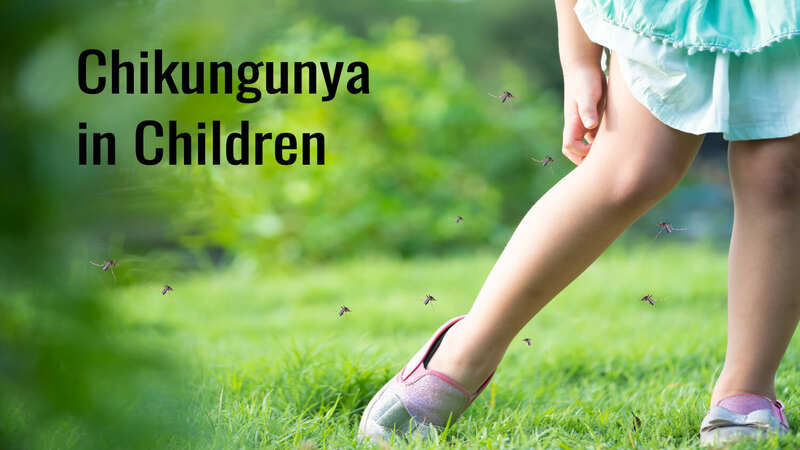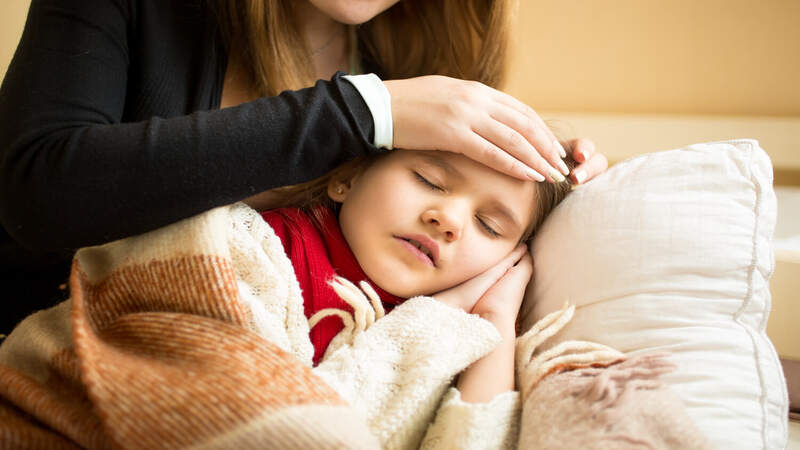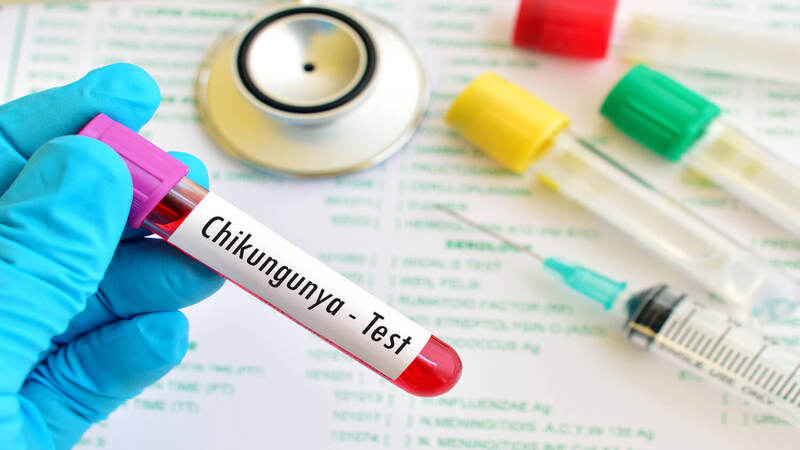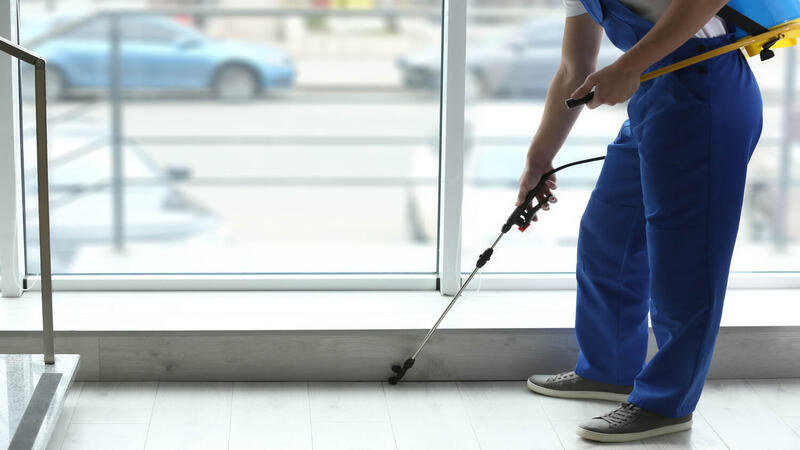
The initial years of your children are very crucial. You need to protect your kid from all sorts of harmful infections and diseases. As their immune system is not very strong, kids can get easily affected by viruses. One such virus-affected common disease in children is Chikungunya.
Though the first case of Chikungunya occurred in 1952, in recent years it is having noticeable outbreaks all over the world. As its favorite victims are children, you need to be extra careful. So what exactly is Chikungunya and why are children susceptible to it? What are its symptoms and treatments? Know all about it here.
What is Chikungunya?
Chikungunya is a mosquito-borne viral disease caused by the virus called Chikungunya virus or CHIKV. Asia and Africa used to be mostly affected by this virus but in recent times European countries are also seeing its outbreaks.
The name Chikungunya came from the Tanzanian Kimokonde language. It means “to become contorted” which rightfully describes the characteristics of this disease.
People often confuse Chikungunya with dengue and Zika. There are a lot of similarities between them. With the onset of monsoon, the breeding of mosquitoes increases so do these mosquito-borne diseases. So let’s find out how this disease spreads.
How Does the Chikungunya Virus Spread?
The medium of transmission of the Chikungunya virus is mosquitoes. It cannot spread through one person to another normally. The female tiger mosquitos or Aedes aegypti and Aedes albopictus are responsible for the spreading of Chikungunya.
The transmission of CHIKV happens when a female tiger mosquito bites a person already infected with Chikungunya and then bites a normal person. The mosquito here picks up the virus-loaded blood from the viremic person and injects it to a new naïve host.
CHIKV virus can spread more quickly than other mosquito-borne viruses. Some laboratory experiments show that the CHIKV virus can be detected in the saliva of the mosquito within 2/3 days after the blood meal.
It suggests that the Chikungunya virus takes less than a week to complete the cycle from an infected person to an unintended one. And once the mosquito gets infectious, it can transmit the virus to as many people as it bites throughout its life.
Thus to stop the spreading of Chikungunya one has to restrict the breeding of mosquitoes.
How are Children More Susceptible to Chikungunya?
The activities of mosquito peaks during the daytime. As children remain outside the home during the daytime such as in school, playground, parks, etc. they become easy prey.
[Read : Joint Pains in Children]
Signs and Symptoms of Chikungunya in Children

The signs and symptoms of chikungunya are very much similar to dengue. These are:
- A sudden increase in body temperature that goes high (100.4 degrees F) and lasts for 4 to 7 days.
- Feeling chills
- Headache
- Vomiting and nausea
- Diarrhea
- Rash on the skin after two to three days of fever. These appear especially on the shoulders, arms, and backs. Some children can also have rashes on their faces and all over the body.
- Skin lesions last for 5 days with hyperpigmentation.
- Babies younger than 6 months can show up with extensive bullous lesions with blisters covering 35% of the body surface.
- Loss of appetite
- Fatigue and pain behind the eye
- Acute pain and swelling in the bone joints and muscles though this symptom is more common in adults than in children.
If your child is showing these symptoms then consult the pediatrician immediately. Especially in newborn babies or babies with pre-existing medical conditions, chikungunya can cause severe complications. This includes bacterial infections, brain swelling, intracerebral hemorrhage, etc.
If the expecting mother catches chikungunya before one week of delivery then the virus passes to the newborn and symptoms show up within 4 days of birth.
Diagnosis of Chikungunya in Children

CHIKV can be easily diagnosed by testing the plasma or serum in the laboratory. It can be diagnosed by:
- Taking samples after 3 days of infection
- If the sample is taken within the first week of illness then RNA testing can be done
- RT-PCR test, enzyme-linked immunosorbent assays, etc. can be done for genotyping the virus
- Blood testing can also be helpful by detecting the presence of the Chikungunya antibody in the blood.
Treating Chikungunya in Kids
There are still no vaccines for Chikungunya available. For most kids, you don’t need a vaccine or medicine to treat Chikungunya. However, you can follow these steps as a home treatment of Chikungunya in children:
- Giving them plenty of water and other fluids to keep their body well hydrated
- Make them take plenty of rest and good sleep
- Give them lots of fruits and veggies full of vitamins and minerals to develop their immunity against the virus faster
- Giving them ginger tea and warm soups for energy and to combat nausea
- You can give infant paracetamol to your kid in case of high fever and body pain. Follow the dose limit according to your kid’s age after consulting the doctor.
- Protect your kid from further mosquito bites to stop spreading the virus further.
[Read : Ibuprofen And Paracetamol For Your Children]
Can Alternative Medication Help in Treating Joint Pain Post Chikungunya?
Ayurveda has much to offer to cure chikungunya. These are:
- For joint pain and swelling pressing rice bran filled warm cloth bags will help.
- Drinking papaya leaves juice, and turmeric milk is also effective for chikungunya.
- You can apply garlic paste to the affected skin.
- You can add a pinch of cinnamon in castor oil and massage your kid’s body to give his/her a bit of relief.
How to Protect Your Child Against Chikungunya?

To keep your child safe from chikungunya you need to:
- Make your child wear full sleeve clothes throughout the monsoon season.
- Make them wear light-colored clothes as dark colors attract mosquitoes.
- Use safe mosquito repellent cream on their cloth or skin.
- Maintain hygiene and cleanliness around your area.
- Empty stagnant water as it is the best breeding spot for mosquitoes.
- Spray insecticides around your locality.
- Use mosquito repellent and mosquito net at home.
- You can also install wire meshes on the windows and door brushes to keep your home mosquito-free.
You will have to focus more on cleanliness and good hygiene to fight such mosquito-borne diseases as chikungunya and dengue. Keep your child away from mosquitoes as this is the only way to fight chikungunya.
[Read : Viral Fever In Children]
FAQ’s
1. How Long Can Chikungunya Last?
Chikungunya can last from 10 to 14 days after contamination. Though the initial symptoms will subside by that time, weakness and joint pain can last for a few more weeks.
2. Which Fruit is Good For Chikungunya?
Vitamin C-rich fruits or citrus fruits are especially helpful in chikungunya. But you can have all sorts of fruits as all fruits have their benefits.
3. What Should Not Eat in Chikungunya?
One should not eat too many spicy and non-veg dishes during chikungunya. This will pressurize the already compromised liver system and cause diarrhea.
4. Does Chikungunya Spread by Touch?
No, chikungunya does not spread through touch as it is not air-borne. It is a mosquito-borne virus.
Read Also: Dengue Fever In Children

